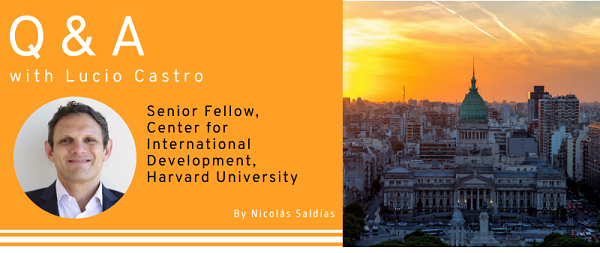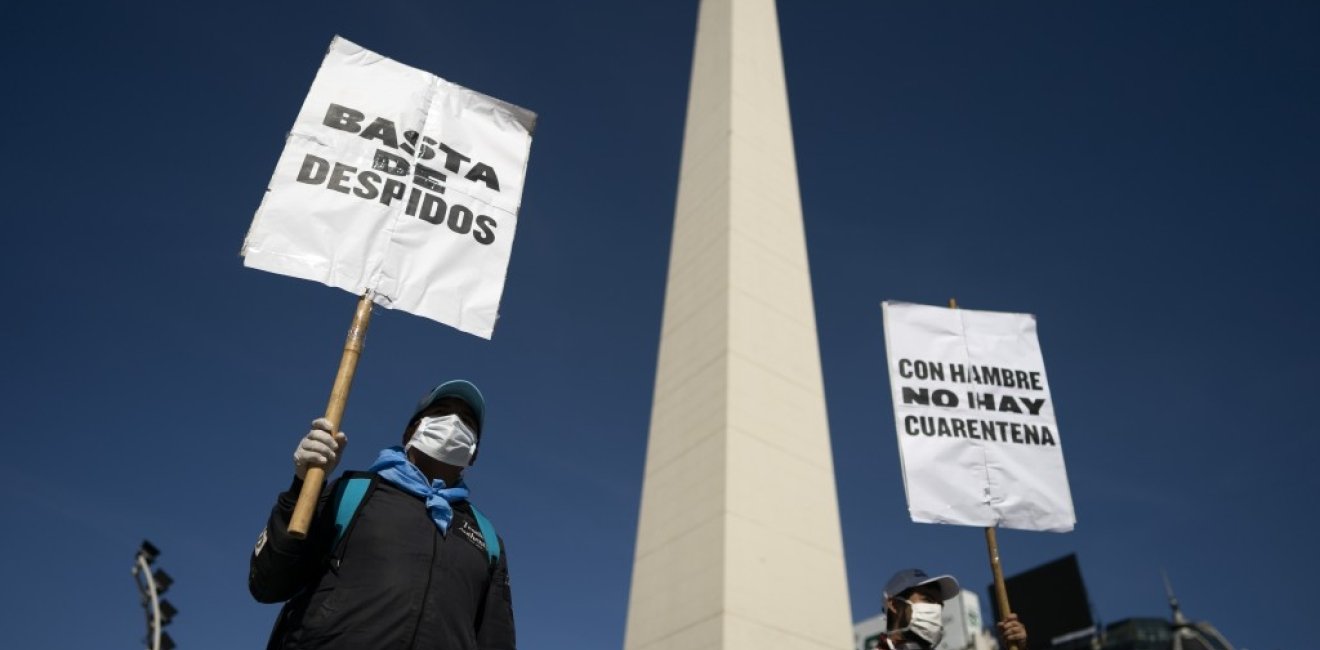
A blog of the Latin America Program

Q: Argentina defaulted on $65 billion in foreign law debt on May 22, and creditors and the Fernández administration remain at loggerheads over Argentina’s restructuring proposal. Some analysts downplayed the consequences of default, noting that Argentina was already locked out of capital markets. What would be the immediate and medium-term fallout should Argentina fail to reach an agreement with creditors?
A: A default poses significant risks for the Argentine economy, both in the immediate and medium term. In the short term, a definitive failure in the debt negotiations might catalyze a run on the peso that might further deteriorate the central bank’s already weak international reserve balance. This, in turn, could eventually result in a forced sharp adjustment in the official exchange rate, despite tightening capital controls. In the medium term, a default would not only close access to international financing for Argentina’s already exhausted treasury, but more importantly, also to the private sector, jeopardizing the possibility of a prompt recovery in the aftermath of the COVID-19 crisis. Crucially, this scenario must be seen through the lens of the macroeconomic situation before the pandemic, characterized by a stagnant economy and high inflation.
Q: As a serial defaulter, chronically incapable of producing a balanced budget, Argentina typically receives little sympathy for its debt troubles. However, Finance Minister Martín Guzmán has managed to attract support from Nobel laureate economists, the pope and the International Monetary Fund. Does his public relations campaign have any influence on talks with Wall Street creditors?
A: The international support received by Argentina is a positive development compared to previous debt default episodes. While this is a remarkable political achievement, the relevant issue in a debt restructuring process is the credibility of a government’s proposal, and more importantly, of the economic policies that ultimately will determine a country’s capability to repay its debt.
Q: Argentina is hardly the only country seeking debt relief, as borrowers worldwide struggle to service their debts while also addressing the public health and economic impacts of the pandemic. Meanwhile, the Paris Club and G-20 have signaled openness to postponing debt payments. In this climate, will Argentina find it easier to negotiate a new IMF program, even without accepting politically difficult conditions, such as promises of tax, labor or pension reform?
A: Given the debt problems many countries are facing, the international climate seems more benign for Argentina in term of reaching a satisfactory agreement with creditors. Yet it is important to note that emerging economies with a history of responsible fiscal policies have been able to tap international capital markets to finance their responses to the COVID-19 crisis. In that context, Argentina again appears more like an exception than the norm among developing countries, even in the context of the pandemic.
Q: Unable to access credit, and with a deep recession dampening tax revenue, Argentina’s government is rapidly printing pesos to pay for emergency spending. Unlike in other countries, such as the United States, money printing in Argentina could quickly translate to higher inflation, which exceeded 50 percent last year. Given the troubling rate of monetary emission and Argentina’s history, is hyperinflation a possibility?
A: While the fiscal deficit could exceed five percent of GDP this year, and is being practically entirely financed by the central bank, tightening capital and foreign exchange controls, a trade surplus, the severe contraction in economic activity and an artificially inflated money demand as a result of the harsh lockdown measures imposed by the government have so far contained inflationary pressures. Yet the gradual relaxation of the lockdown in the last two months, the rapid deterioration of the trade surplus – related to the widening gap between the official and unofficial exchange rates – as well as the rapid deterioration in the fiscal balance are being reflected in gradually increasing pressures on the inflation rate.
Q: Not only did Argentina max out its credit card with private lenders before the pandemic, it also borrowed liberally from multilateral development banks, including the Inter-American Development Bank, where you worked until recently. Should Argentina default, is there any institution left that could help? Is there any possibility Argentina’s economy could grow quickly enough to right the ship, even after a default?
A: A hard default on its external debt would not only shut down public and private access to voluntary global capital markets, but also would lead international financial institutions to reduce their exposure to Argentina. Given the prolonged recession Argentina has been experiencing in the last two years, coupled with the massive demand and supply shocks of COVID-19, a swift recovery is not likely, especially in the absence of international financing.
Author


Argentina Project
The Argentina Project is the premier institution for policy-relevant research on politics and economics in Argentina. Read more


Latin America Program
The Wilson Center’s prestigious Latin America Program provides non-partisan expertise to a broad community of decision makers in the United States and Latin America on critical policy issues facing the Hemisphere. The Program provides insightful and actionable research for policymakers, private sector leaders, journalists, and public intellectuals in the United States and Latin America. To bridge the gap between scholarship and policy action, it fosters new inquiry, sponsors high-level public and private meetings among multiple stakeholders, and explores policy options to improve outcomes for citizens throughout the Americas. Drawing on the Wilson Center’s strength as the nation’s key non-partisan policy forum, the Program serves as a trusted source of analysis and a vital point of contact between the worlds of scholarship and action. Read more

Explore More in Weekly Asado
Browse Weekly Asado
Dengue Haunts South America’s Summers

Lessons from Costa Rica’s Economic Transformation

Women and Latin America’s Digital Revolution

